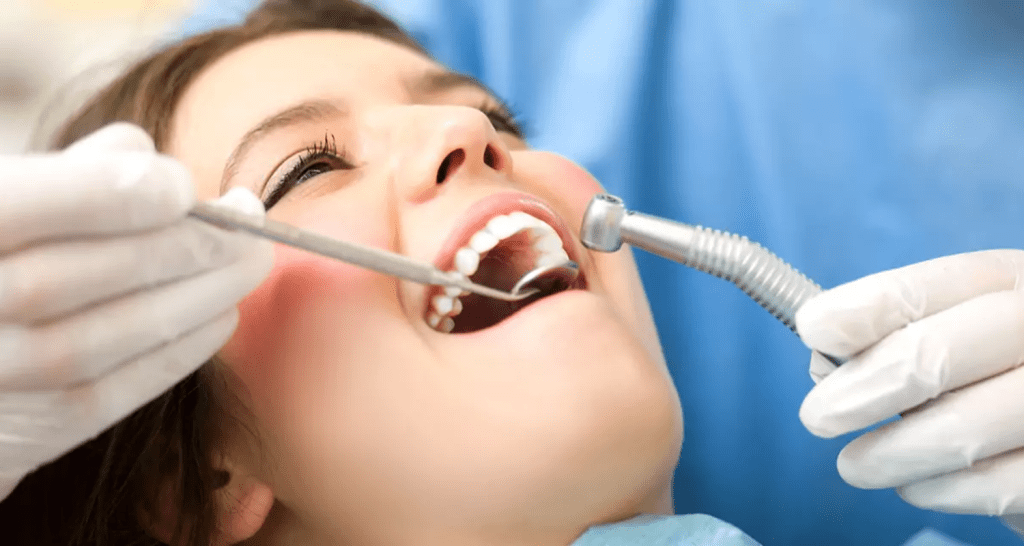Last Updated on: 12th December 2025, 06:12 am
Oral Health: Antibiotic Prophylaxis In Cardiac Patients
Heart diseases represent one of the foremost health problems worldwide, being the main cause of mortality in both men and women. In the field of dentistry, the cardiac patient is considered at risk due to factors such as the stress of certain dental treatments and the use of anesthetics and other vasoconstrictive medications. This reality underscores the importance of properly identifying and managing these patients before starting their dental treatments to prevent complications.
The relationship between heart disease and dental treatments is complex and multifactorial. Dental procedures can cause stress and anxiety, which in turn can affect heart health. Additionally, certain medications used in dentistry, such as anesthetics, can have adverse effects in patients with pre-existing heart conditions. Therefore, dental health professionals must recognize these patients and adapt their treatment methods, accordingly.
What is Antibiotic Prophylaxis?

Antibiotic prophylaxis is a preventive measure used in patients susceptible to infections, particularly during dental procedures that carry a risk of bacteremia. During interventions such as tooth brushing, bacteria present in the mouth can enter the bloodstream, a phenomenon known as bacteremia. Although in most people, the immune system clears these bacteria harmlessly, in certain patients, especially those with heart conditions, these bacteria can travel and cause infections in other parts of the body.
This preventive treatment is especially important in dentistry due to the invasive nature of many dental procedures. Procedures, such as dental extractions or salivary gland biopsies, can significantly increase the risk of infection in certain patients. Therefore, administering antibiotics before these procedures may be crucial in preventing serious complications. Discover natural options to treat dental infections here.
Patients Requiring Antibiotic Prophylaxis
Antibiotic prophylaxis is recommended for a small group of individuals who have certain cardiac conditions, which increases the probability of developing infective endocarditis. This condition affects the inner layer of the heart muscle. The American Heart Association recommends considering antibiotic prophylaxis in the following cases:
● People with artificial heart valves
● Individuals with a history of endocarditis
● Patients with congenital heart disease
● People who have received heart transplants and have vascular heart disease
It is important to emphasize that antibiotic prophylaxis is not recommended for all patients. As with any medication, antibiotics should only be used when the expected benefits outweigh the possible risks associated with their consumption.
What Dental Procedures Require Antibiotic Prophylaxis?

According to the latest guidelines on antibiotic prophylaxis issued by the American Heart Association and the American Dental Association, it is recommended for a wide range of dental procedures, including teeth cleaning and extractions. Generally, it applies to any dental procedure that involves surgery of the gingival tissue or any other incision in the oral tissue. This includes:
● Extractions and oral surgery.
● Periodontal procedures, including surgeries, scaling and root planing, periodontal maintenance, probing g, and subgingival irrigation.
● Endodontic treatments and periapical surgery.
● Insertion of dental implants.
● Intraligamentary application of local anesthetics, especially in infected areas.
● Implant or dental prophylaxis that may induce bleeding.
● Perforation of the oral mucosa.
Various periodontal diseases, such as gingivitis and periodontitis, are potential sources of bacteremia. Therefore, maintaining excellent oral hygiene and overall oral health is crucial to reducing the possibility of bacterial shedding in the blood of at-risk patients.
Antimicrobial Prophylaxis for Dental Procedures
Different guidelines for an antibiotic regimen present similar modifications, but the prophylaxis recommendations suggested by the AHA are the most followed. Amoxicillin administered orally is the preferred medication; it should be taken between 30 and 60 minutes before a dental procedure. In case of an allergic reaction to amoxicillin, clindamycin becomes the alternative. If it is not possible to administer the medication orally, there are options for intramuscular or intravenous administration. Management can be attained with cephalexin. It has been established that for patients under immunosuppressive treatment, clindamycin may be considered the first option since this antimicrobial has a broad spectrum of action.
The dosage of the prescribed antibiotic varies depending on the age and weight of the patient. Typically, oral antibiotics should be taken one hour before a dental treatment. However, if you forget to take them in advance, it is possible to consume them a few hours after the procedure. Nonetheless, it is essential to follow the dentist’s instructions and attend the consultation properly prepared.
Conclusion
In summary, antibiotic prophylaxis in dentistry is essential for patients with certain cardiac conditions, to prevent serious complications such as infective endocarditis. Correct antibiotic selection and dosage, adjusted to the patient’s profile, is crucial before invasive dental procedures. The importance of maintaining rigorous oral hygiene cannot be underestimated, as it plays a vital role in reducing the risk of bacteremia. This preventive approach and collaboration between patient and dentist are essential to ensure safe and effective treatment.
Frequently Asked Questions
In which dental procedures is antibiotic prophylaxis necessary for patients with heart problems?
For patients with pre-existing cardiac conditions, it is advisable to perform antibiotic prophylaxis for all dental treatments that involve manipulation of the gingival tissue, the periapical area of the teeth, or perforation of the oral mucosa.
What antibiotic is used as prophylaxis in cardiac patients?
Current guidelines suggest a single two-gram dose of amoxicillin, taken orally 30 to 60 minutes before treatment, as the preferred medication to prevent infective endocarditis.
Do patients with cardiac stents require antibiotic prophylaxis?
The position of the American Heart Association, expressed in its scientific statement on the topic, indicates that antibiotic prophylaxis is not advised for patients with cardiac stents undergoing dental, respiratory, gastrointestinal, or genitourinary procedures.
What is the recommended antibiotic for dental prophylaxis in cases of rheumatic heart disease?
For the prevention of endocarditis in certain dental treatments in patients with particular cardiac conditions, including rheumatic heart disease, amoxicillin is recommended as the drug of choice. This applies even to those patients who are receiving benzathine benzylpenicillin G as secondary prophylaxis.
Share:
References
1. American Dental Association (ADA). (n/f). Antibiotic Prophylaxis Prior to Dental Procedures. https://www.ada.org/resources/research/science-and-research-institute/oral-health-topics/antibiotic-prophylaxis
2. British Columbia College of Oral Health Professionals (BCCOHP). (Nov, 2021). Interpretation Guidelines: Antibiotic Premedication (Cardiac Conditions) Applies to Dental Hygienists. https://oralhealthbc.ca/wp-content/uploads/2022/08/02.02.012-IG-Antibiotic-Premedication.pdf
3. Sociedad española de Epidemiología y Salud Pública Oral (SESPO), Sociedad Española de Cardiologia. (May, 2019). Protocolo de Odontología Preventiva en Pacientes Cardiópatas. https://secardiologia.es/images/institucional/SESPO-Protocolo.pdf
4. Astudillo C. Maria, Alvear C. Maria C., (2022).Protocolo de profilaxis antibiótica para pacientes dentales en riesgo de infección. Odotnología Sanmarquina. https://doi.org/10.15381/os.v25i1.22079. https://docs.bvsalud.org/biblioref/2022/02/1358544/astudillo-crespo-25110.pdf
5. Hollingshead CM, Brizuela M. (Mar, 2023). Antibiotic Prophylaxis in Dental and Oral Surgery Practice. StatPearls. https://www.ncbi.nlm.nih.gov/books/NBK587360/
6. Mouthhealthy. (n/f). Antibiotic Prophylaxis for Heart Patients. American Dental Association (ADA). https://www.mouthhealthy.org/all-topics-a-z/antibiotic-prophylaxis-for-heart-patients#:~:text=Antibiotic%20prophylaxis%20is%20recommended%20for,antibiotics%20prior%20to%20dental%20care
- Nayibe Cubillos M. [Author]
Pharmaceutical Chemestry |Pharmaceutical Process Management | Pharmaceutical Care | Pharmaceutical Services Audit | Pharmaceutical Services Process Consulting | Content Project Manager | SEO Knowledge | Content Writer | Leadership | Scrum Master
View all posts
A healthcare writer with a solid background in pharmaceutical chemistry and a thorough understanding of Colombian regulatory processes and comprehensive sector management, she has significant experience coordinating and leading multidisciplina...Recent Posts















